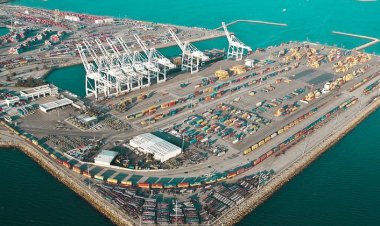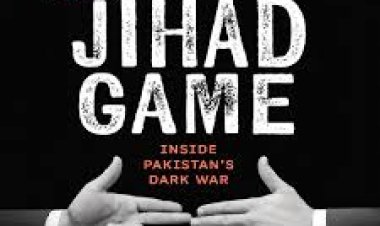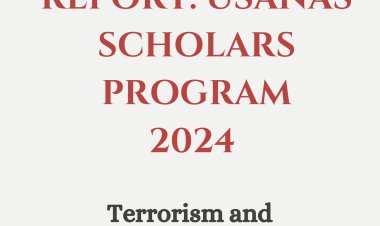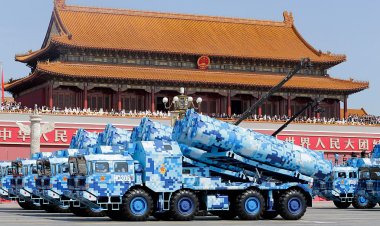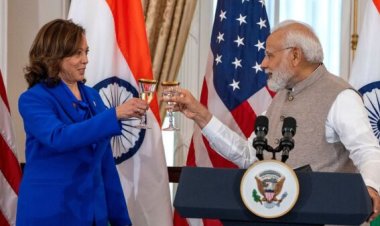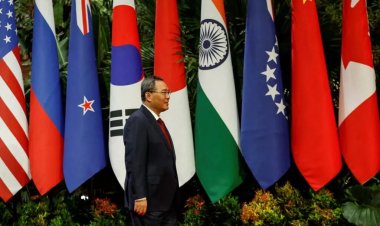Why will China win the war in Gaza?
China becomes the main beneficiary of the new conflict between Israel and Hamas. A conflict susceptible of also involving Hezbollah and even Iran itself. This article dicusses three reasons may explain, why Beijing would reap important advantages from that war.
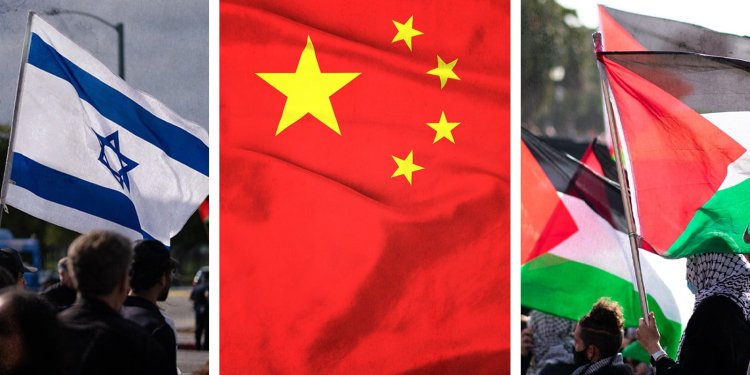
Analysis
By Amb. Alfredo Toro Hardy
Without a doubt, China becomes the main beneficiary of the new conflict between Israel and Hamas. A conflict susceptible of also involving Hezbollah and even Iran itself. Three reasons may explain, why Beijing would reap important advantages from that war.
America’s attention back to the Middle East
The first of such reasons is that America’s attention will have to go back to the Middle East. In 2011, Kishore Mahbubani expressed the following: “If you look at it objectively, the world’s greatest power should always be focused on the world’s greatest emerging power. That’s a logical thing to do. Therefore, the United States should be spending 90 percent of its resources focused on China. Instead, the United States is spending 90 percent of its time focused on the Islamic world, fighting unnecessary wars in Iraq and Afghanistan.” Needless to say, that China’s leadership merrily spoke of a period of strategic opportunity, when Washington was not paying enough attention to their actions. This translated into the geopolitical miracle of emerging without alarming the Americans.
This lack of attention towards China’s actions, is something that the United States began trying to correct since Obama’s “pivot to Asia”. America’s forever wars, though, made this a difficult endeavor. It took Biden’s costly decision of retiring U.S. troops from Afghanistan to finally close this chapter. Its main purpose was focusing attention where attention was due: China. Russia’s invasion to Ukraine, however, opened a new front that forced America to share its focus. Now, a new conflict dilutes that attention even more. As in Michael Corleone’s famous line in The Godfather 3, Washington could say that every time that it tries to get out from the Middle East entanglements, it gets pulled down again. Alex Lo put this graphically from a perspective clearly sympathetic to Beijing: “However, first Ukraine and now Palestine, Uncle Sam just can’t catch a break. One big problem with running a global empire is that you inevitably have your fingers in too many pies. China was going to be that one big pie to care of. But it’s proving to be hard when other pies are burning. Now those require serious attention (…) And then Hamas struck…That’s a tragedy for the Palestinians and Israelis, but a gift to Beijing. It ends Washington’s dream of leaving behind a relatively stable Middle East to take the fight to China”. A new phase of strategic opportunity may indeed result for Beijing. Not surprisingly, there are concerns among U.S. allies in Asia that Washington’s attention may move away from the Indo-Pacific, leaving a window of opportunity that China could try to exploit.
Image gaps
The second reason why this fresh war may benefit China, is that while the U.S. directly involves itself in the brawl, assuming the huge image erosion as a result, Beijing not only flies over the conflict but presents itself as its natural arbiter. As Kevin Rudd explains, referring to China’s influence: “This expanding strategic presence across the Middle East has been rapid and remarkable. Once again, China’s ability to execute this strategy with minimal public fanfare has been based on its formidable economic leverage in each regional capital - and its ability to minimize the risk of being caught in the complex web of intraregional tensions. By not taking sides, China has established, developed, and maintained friendships with all the region’s belligerents, carefully balancing its relationships with Iran, the Arab states, and Israel (…) Beijing has concluded that the region’s disputes are largely intractable and that the US interventions have, in large part, been folly”.
Therefore, as Washington becomes closely associated with Israel’s unavoidable excesses in an urban and highly charged emotional conflict, China takes no sides and incurs in no costs. Moreover, it reaps significant gains. As reported in The New York Times: “Many Arabs say the American government is not only indifferent to the agony of Palestinians living under Israeli occupation, but also complicit in it (…) ‘There is a tremendous anger in the Arab world, even by those who do not support Hamas’ said Nabil Fahmy, a former foreign minister of Egypt (…) So intense is the anger that a refrain, ‘Death to America’, has found renewed resonance in the region, including during a protest on Friday in Bahrain, a close American ally”.
The contrast between American and Chinese actions at this point in time, speaks volumes in this regard. On the one side, Biden travels to Tel Aviv to express his country’s “ironclad” support to Israel, and positions two aircraft carrier battlegroups close to its costs to deter other potential belligerents. On the other side, Xi Jinping receives high level delegations from 140 countries from the Arab world and the Global South, in order to focus in China’s support to their development and interconnectivity.
Moreover, while the latter event falls under China’s Global Development Initiative, Xi Jinping is also advancing the so-called Global Security Initiative. This aims at presenting his country as an honest arbiter in processes of peace and stability, within a harmonious international order. Both of these initiatives represent, according to James Kynge, “China’s boldest move yet to enlist the support of the Global South”. In syntony with its Global Security Initiative, Beijing has adopted a neutrality position in the Gaza conflict, while maintaining that it stands ready to talk and coordinate with the Arab League to bring a peace process to the Middle East. Moreover, Xi Jinping has called for a cease-fire saying that his country is willing to help finding a “comprehensive, just and lasting solution” to the crisis. This has not been well received by Israel, who sees it as a lukewarm and impractical posture. But as a Politico report states: “China is likely making a long-term play: gain favor in the Middle East as well as with countries sympathetic to the Palestinian cause in regions such as Africa and Latin America (…) Still, the Chinese approach overall has been far more neutral than the stance the United States and some European nations have taken, which has largely focused on sympathy and support for Israel. (…) In some ways, it fits well into the opportunistic way China is approaching world crises to push for superpower status. Xi in particular is seeking more support for his Global Security Initiative, an alternative vision to the U.S.-led international order”. In other words, while the U.S. alienates the Arab World and most of the Global South by its partisan standing, China consolidates its superpower status within this lot, where the numerical majority resides.
Net loss, net gain
The third reason is that it freezes, or simply kills, the tripartite agreement in the making between the U.S., Saudi Arabia and Israel. This long-negotiated agreement, which was supposed to be signed at the beginning of next year, entailed many things at the same time. Indeed, it brought with it a normalization of relations between Saudi Arabia and Israel; a formal defense treaty between the Saudis and the U.S. and the means for the former to enrich uranium; Israel’s significant concessions to the Palestinians; an American say in Saudi Arabia’s oil production volumes (and hence on international prices); a blockage of Chinese 5G technology in the kingdom; a formal prohibition for establishing Chinese military bases in Saudi Arabia. And so on.
In essence, the agreement would have strengthened America’s interests by triple measure, while simultaneously weakening those of China. Firstly, it allowed the United States to consolidate a peaceful Middle East (after having succeeded with the Trump’s Abraham Accords). This would have permitted Washington from definitely disentangling itself from that part of the world, and to turn the bulk of its attention to the Indo-Pacific region. Secondly, it transformed the U.S. in the top foreign dog within the kingdom, with tremendous influence in several areas. This would have been tantamount to curtailing Chinese accrued influence there. Thirdly, it curbed in very concrete ways China’s penetration in Saudi Arabia, including Huawei’s 5G technology and potential Chinese military bases. The non-materialization of this tripartite agreement represents, thus, a net loss for Washington, and a net gain for Beijing.
The possibility of bringing back to life this agreement seems close to zero at this point, as the distance between Saudi Arabia and Israel has become huge. Indeed, referring to the Israeli-Hamas confrontation, The Economist reports: “The Saudi foreign ministry has in effect blamed Israel for the violence, owing to the ‘continued occupation’. On October 11th Prince Muhammad and Iran’s president, Ebrahim Raisi, spoke on the phone – the first time they have ever done so. Iran said they discussed the ‘need to end war crimes against Palestine’”. In other words, China can breathe easy.
Everything flows
By mid 2021, the tendencies in the correlation of power between China and the United States seemed to have favor the former. Although the U.S. was still clearly on top, Beijing was rapidly discounting the advantage. At the beginning of the third quarter of 2023, though, Washington had consolidated its upper hand and the tendencies were moving in its direction. Now, the war between Israel and Hamas introduces a fresh element that pushes the needle towards China’s side.
The struggle for primacy in the Cold War between these two behemoths is, by its own nature, highly dynamic. Mistakes or attainments, political shortcomings or political successes, can move the balance in either direction. Moreover, black swans and the response to them, are also part of the game. More than the structural problems in each case, the willingness or the capacity to address them also counts much. As 5 Century BC’s well-known philosopher Heraciltus use to say: Nothing is permanent, everything flows. And indeed, within the U.S.-China relation, everything flows.
By clearly benefiting China and negatively affecting the United States, it could be said that China becomes the main winner of Gaza’s war.
Disclaimer: This paper is the author's individual scholastic contribution and does not necessarily reflect the organization's viewpoint.
*Alfredo Toro Hardy, PhD, is a retired Venezuelan career diplomat, scholar and author. Former Ambassador to the U.S., U.K., Spain, Brazil, Ireland, Chile and Singapore. Author or co-author of thirty-six books on international affairs. He is an Honorary Fellow of the Geneva School of Diplomacy and International Relations and a member of the Review Panel of the Rockefeller Foundation Bellagio Center.






